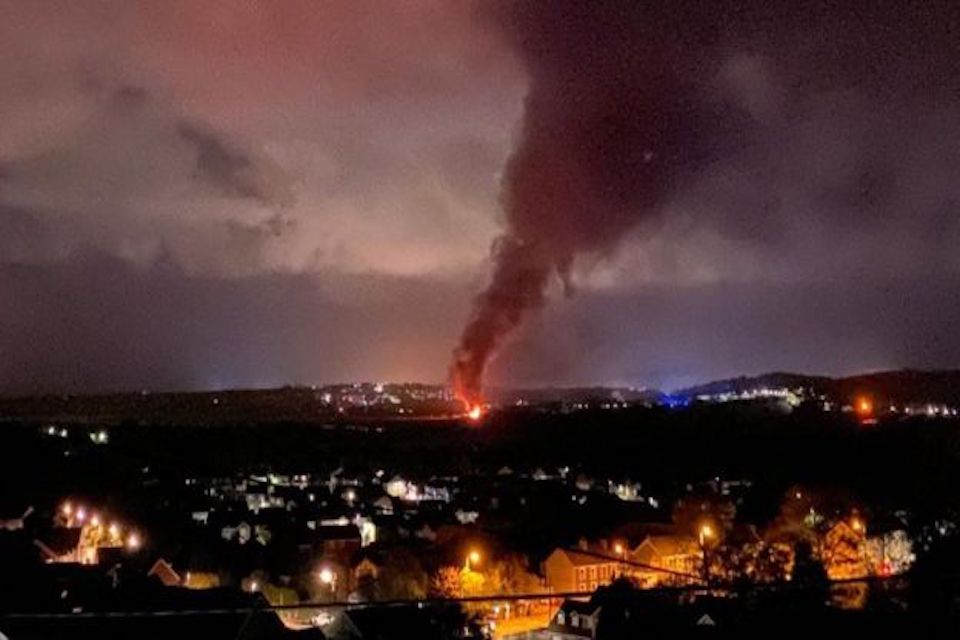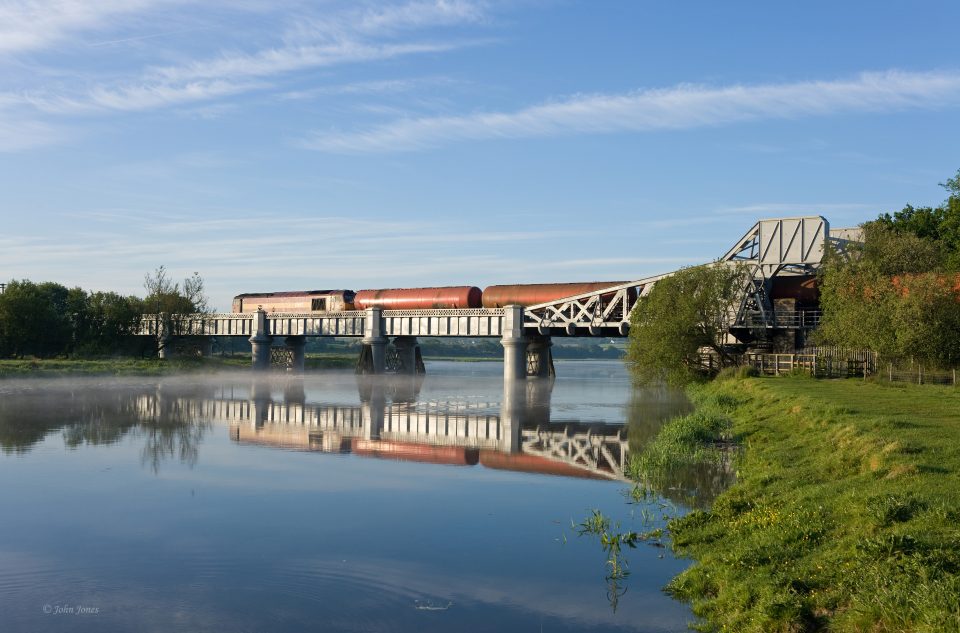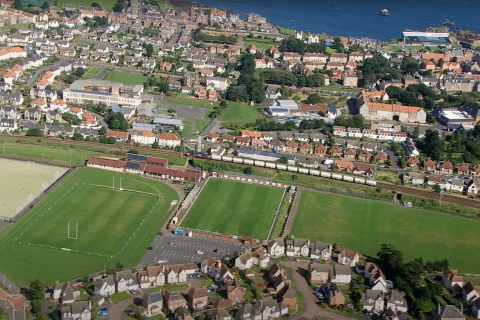Six months later and still cleaning the mess of Welsh derailment

The clean up of a Welsh oil train derailment has been called the biggest ever environmental job in the UK, with the exception of offshore accidents which saw oil tankers sunk. Last year’s derailment has also been likened to the biggest peace-time problem of its kind faced in the UK.
Six months after an east-bound oil tanker train derailed at Llangennech, near Llanelli in South Wales, environmental recovery teams are still onsite, dealing with the huge spill. Investigators are still at work on the causes of the accident, while the clean up continues, with around 30,000 tonnes of contaminated soil removed for remediation in the last two months alone.
As bad as Sea Empress
Late in the evening of 26 August 2020, an oil tanker train, en route from Milford Haven in the far south west of Wales, derailed and caught fire, forcing the evacuation of nearby homes in the village of Llangennech, nearby Llanelli in Carmarthenshire, also in Wales. Removal of the rolling stock and repairs to the permanent way were extensive but begun relatively quickly. However, repairing the environmental damage is taking considerably longer.
The derailment and spill contaminated a nearby nature reserve, and has caused an ongoing headache for the environmental agencies. A spokesperson for Natural Resources Wales compared it to the maritime disaster of the sinking of the Sea Empress, twenty-five years ago, almost to the day on 15 February, 1996. In that environmental calamity, an oil tanker carrying 130,000 tonnes of crude oil, ran aground in the entrance to Milford Haven, ironically heading for the same terminal that dispatched the ill-fated train last August. The tanker was quickly refloated, but sustained serious damage and discharged much of its cargo into the water.
Remediation work
Rail services were significantly disrupted immediately after the derailment. Passenger and freight operations have since recovered, but the clean up continues. The project is being co-ordinated by the national environment agency for Wales. Incident recovery manager Stuart Thomas, of Natural Resources Wales, said he had not seen anything like it in a quarter of a century. “This is the most challenging recovery operation we’ve seen since Pembrokeshire’s Sea Empress disaster 25 years ago”, he said.

Remediation work on the soil – the removal, safe cleaning and reinstatement – is expected to continue until the end of February. The worst contaminated soil has been removed to a South Wales facility and replaced with clean material from nearby sites. “We’re continuing to make great progress at Llangennech”, says Network Rail, the UK infrastructure management agency. “Our frontline teams are working round the clock to reopen the railway for essential journeys and freight. Despite a number of challenges on site, including the extreme weather, we’re delighted to confirm that we remain on course to complete our work on site in early March.”
Biggest ever environmental recovery
Network Rail say they can fully reopen the Heart of Wales line from Shrewsbury to Swansea for the first time since August 2020, with passenger and freight services also resuming operations via the Swansea District line. “With the installation of 530 metres of brand-new track nearly complete, the final stage of our work at Llangennech involves repairing the signalling equipment that was damaged during the derailment”, says their statement. That’s good news for the Welsh government, which recently announced that it was taking railways in the country back into public hands.

Network Rail say they played a key role in helping avert an environmental disaster. The derailment happened in an area of sensitive natural heritage, with nearby wetlands host to rare species of shellfish and other marine life. “The work to reinstate the railway follows one of the biggest environmental recovery operations Network Rail has ever been involved with”, they said. The initial findings put the blame for the accident on to a brake fault. The Rail Accident Investigation Branch are continuing their work.
You just read one of our premium articles free of charge
Want full access? Take advantage of our exclusive offer




